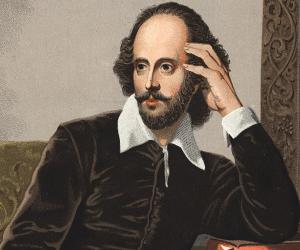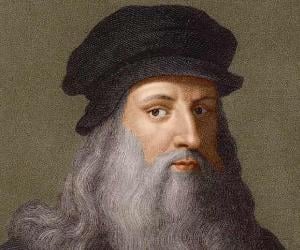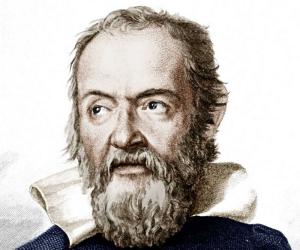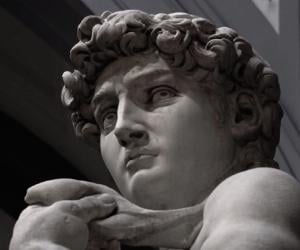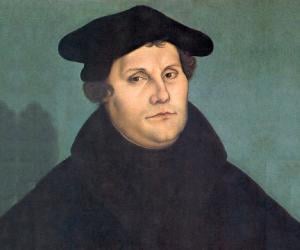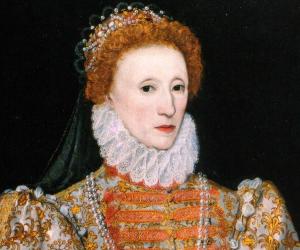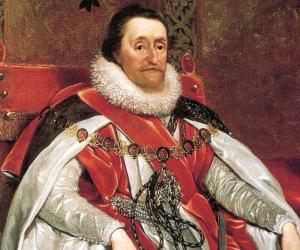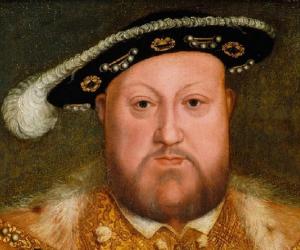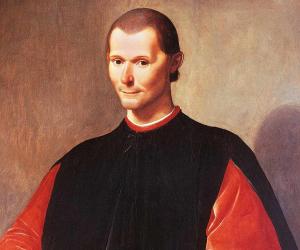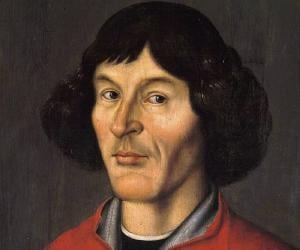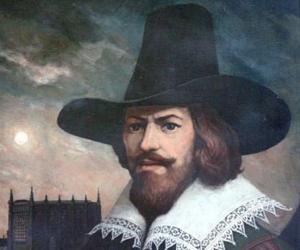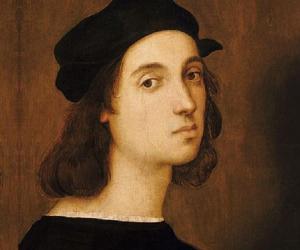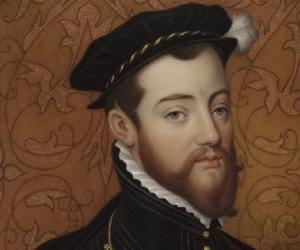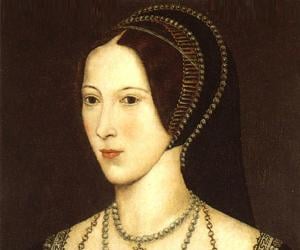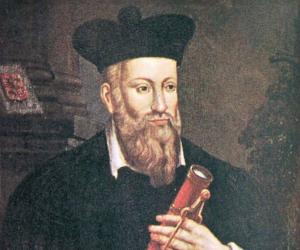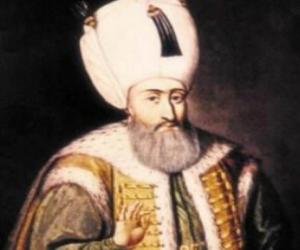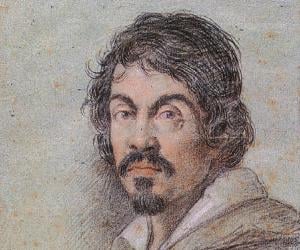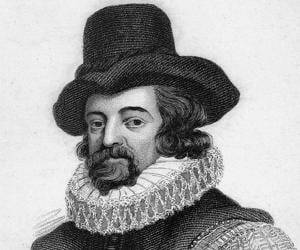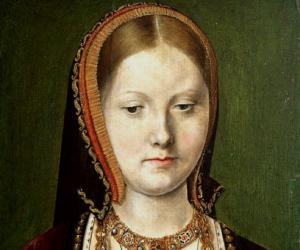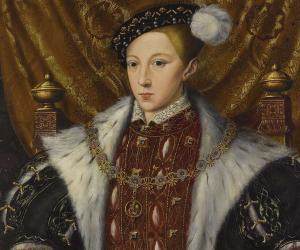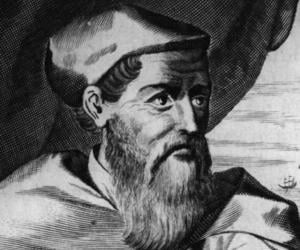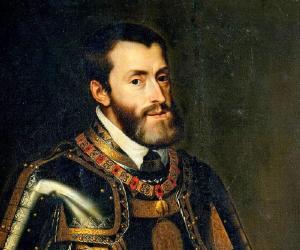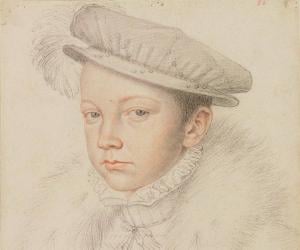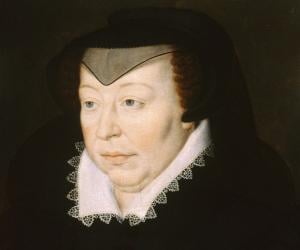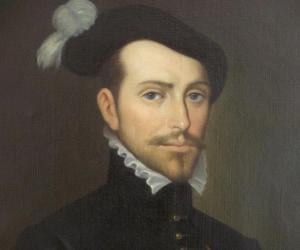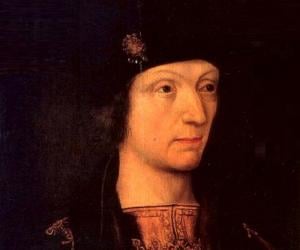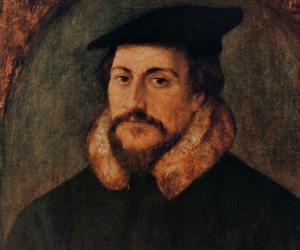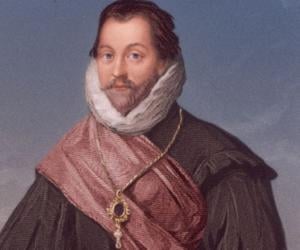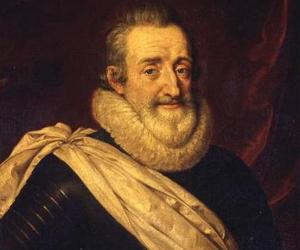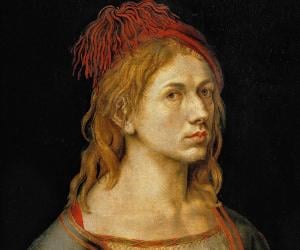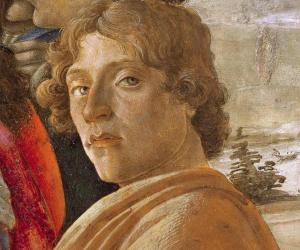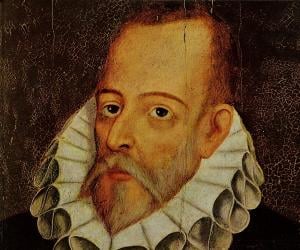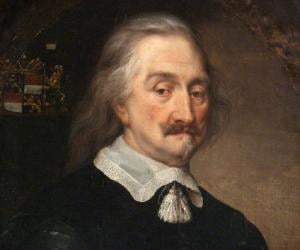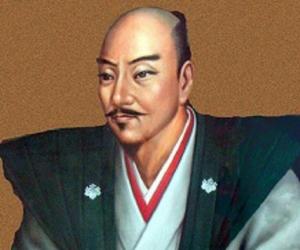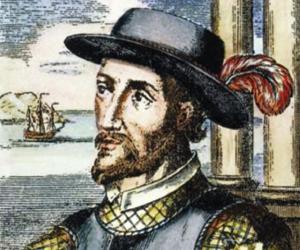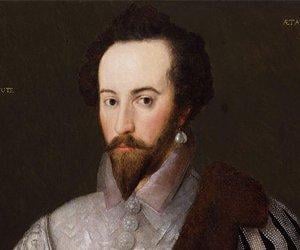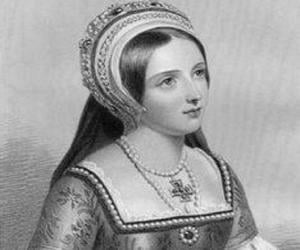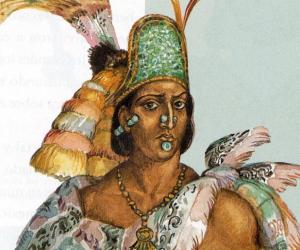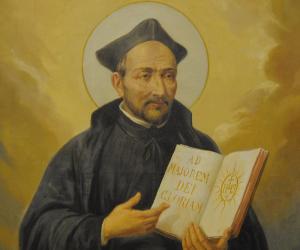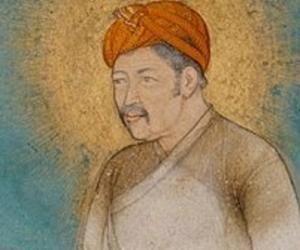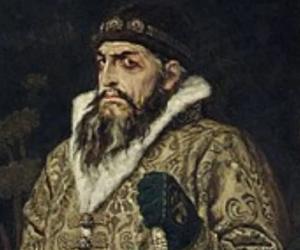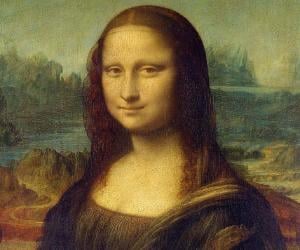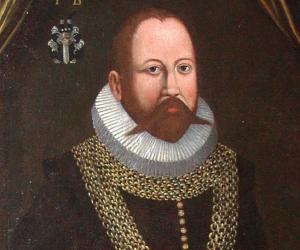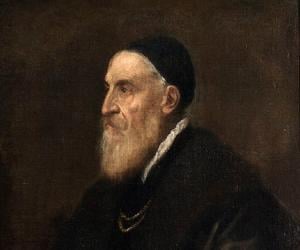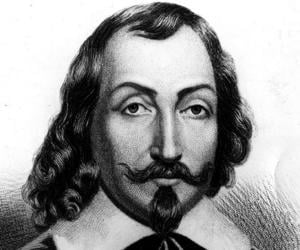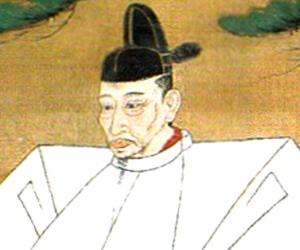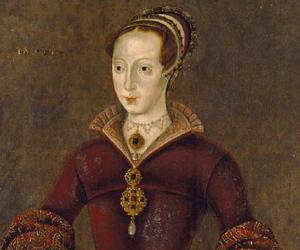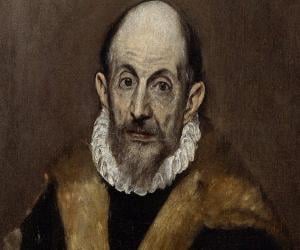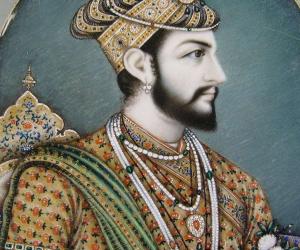Famous People Of The 16th Century
The 16th century is regarded by several historians as the century in which the rise of the West occurred. European nations were widely exploring the hitherto unexplored corners of the Earth and opened newer trade routes. Sir Francis Drake, Francisco de Orellana, Fernão Mendes Pinto, and Luis Váez de Torres were among the prominent navigators and explorers who were born in the century. The era also saw the birth of several famous rulers and emperors including Akbar the Great-third Mughal emperor, Charles V-Holy Roman Emperor, Edward VI of England, and Henry IV of France and Navarre. Fine arts also thrived during this period which saw the emergence of artists like Pieter Bruegel the Elder, Giorgio Vasari, and Juan de Herrera. Musicians and composers including Felice Anerio, Adriano Banchieri, Sebastian Aguilera de Heredia, and Claudio Merulo lived during this period. Galileo Galilei and Johannes Kepler made important mathematical discoveries while the likes of Michael Servetus and Francisco Suarez enriched the field of philosophy. The people of the 16th century played very significant role in shaping the world as it is today. Read on to learn more about the life and works of famous people of the 16th century.
Vote for Your Favourite People Of The 16th Century
Right IconThis ranking is based on an algorithm that combines various factors, including the votes of our users and search trends on the internet.
1
William Shakespeare(English Playwright & Poet Who is Regarded as the Greatest Writer in the English Language)
Birthdate: April 26, 1564
Sun Sign: Taurus
Birthplace: Stratford-upon-Avon, England
Died: April 23, 1616
English playwright, poet, and actor William Shakespeare is widely regarded as the greatest writer in the English language. He is also often called England's national poet. Many of his works have been translated into other languages and his plays continue to be produced till day. Popular during his lifetime, he acquired an iconic status after his death.
2
Leonardo da Vinci(Italian Polymath & Artist Known for His Paintings: ‘Mona Lisa’, ‘The Last Supper’ and ‘Virgin of the Rocks’)
Birthdate: April 15, 1452
Sun Sign: Aries
Birthplace: Anchiano, Italy
Died: May 2, 1519
Widely regarded as one of the greatest painters ever, Leonardo da Vinci was an extremely talented polymath. While his work The Mona Lisa became the most famous portrait, his drawing The Vitruvian Man became a cultural icon. A man well ahead of his time, Leonardo is also known for his notes on science and invention.
3
Galileo Galilei(Known as “Father” of Observational Astronomy who Invented the ‘Thermoscope’ and Various Military Compasses)
Birthdate: February 15, 1564
Sun Sign: Aquarius
Birthplace: Pisa, Italy
Died: January 8, 1642
An Italian astronomer, engineer, and physicist, Galileo Galilei is widely regarded as the father of observational astronomy, the father of the scientific method, the father of modern physics, and the father of modern science. He is credited with popularizing the telescope, which changed the course of history.
4
Michelangelo(Regarded as the Most Accomplished Artist of His Era (High Renaissance))
Birthdate: March 6, 1475
Sun Sign: Pisces
Birthplace: Caprese Michelangelo, Italy
Died: February 18, 1564
Italian sculptor, painter, architect, and poet Michelangelo was a prominent figure of the High Renaissance. He is credited to have influenced the Western art in unprecedented ways. He is widely regarded as the greatest artist of his age and one of the greatest artists of all time. He was equally revered and respected as an architect.
5
Martin Luther(German Theologian, Religious Reformer and Key Figure in Protestant Reformation)
Birthdate: November 10, 1483
Sun Sign: Scorpio
Birthplace: Eisleben, Germany
Died: February 18, 1546
German monk Martin Luther challenged the dogmas of Roman Catholicism and the authority of the pope, in his Ninety-five Theses, and was thus excommunicated. His German translation of the Bible enriched the German culture, and his marriage set an example for clerical marriage. His teachings are now known as Lutherans.
Birthdate: September 7, 1533
Sun Sign: Virgo
Birthplace: Palace of Placentia
Died: March 24, 1603
Elizabeth I, daughter of King Henry VIII and Anne Boleyn, ruled as the Queen of England and Ireland from 1558 to 1603. She had been declared illegitimate after her mother’s execution. Nicknamed The Virgin Queen for her unmarried status, she established an English Protestant church and served as its governor.
Birthdate: June 19, 1566
Sun Sign: Gemini
Birthplace: Edinburgh Castle, Scotland
Died: March 27, 1625
King James I of England and Ireland was also the king of Scotland as James VI. Son of Mary, Queen of Scots, he believed in royal absolutism. He had major conflicts with the Parliament and its ever-growing powers, which eventually led to revolts against his successor, Charles I.
Birthdate: June 28, 1491
Sun Sign: Cancer
Birthplace: Kent, England
Died: January 28, 1547
Henry VIII, the second monarch of the Tudor dynasty, ruled England from 1509 to 1547. He married six times, leading to differences with the Roman Catholic Church, which prohibited divorce, thus forming the Anglican Church. The "father of the Royal Navy," he was known for his tyranny and extravagance.
Birthdate: May 3, 1469
Sun Sign: Taurus
Birthplace: Florence, Italy
Died: June 22, 1527
Italian Renaissance philosopher, diplomat, and author Niccolò Machiavelli is remembered for his work The Prince. He believed that the end or the intention behind any action justifies the action. He gave rise to the term Machiavellianism, which signifies the use of deceit and treachery to achieve one’s goals.
Birthdate: February 19, 1473
Sun Sign: Pisces
Birthplace: Toruń, Poland
Died: May 24, 1543
Nicolaus Copernicus was a mathematician and astronomer. He is credited with formulating Heliocentrism, which led to the Copernican Revolution. Although Aristarchus of Samos had formulated Heliocentrism 18 centuries earlier, Copernicus was responsible for popularizing it. Copernicus is also credited with formulating an economic principle, which was later called Gresham's law.
Birthdate: April 13, 1570
Sun Sign: Aries
Birthplace: York
Died: January 31, 1606
Guy Fawkes was a member of an infamous group which unsuccessfully plotted the murder of King James I. The plot, which came to be known as the Gunpowder Plot, became popular and Guy Fawkes became synonymous with the plot. The failure of the plot has been commemorated as Guy Fawkes Night, during which Fawkes' effigy is burned on a bonfire.
12
Raphael(Italian Painter and Architect of the High Renaissance)
Birthdate: April 6, 1483
Sun Sign: Aries
Birthplace: Urbino, Italy
Died: April 6, 1520
Italian painter and architect Raphael, along with Michelangelo and Leonardo da Vinci, formed the great trio who ushered in the High Renaissance. He is mostly known for his frescoes of the Vatican Palace and The School of Athens. He also designed the Chigi Chapel, among other structures in Rome.
Birthdate: May 21, 1527
Sun Sign: Gemini
Birthplace: Valladolid, Spain
Died: September 13, 1598
Philip II, son of Charles V, was a 16-th century king of Spain and Portugal. Also known as Philip the Prudent, he became the king of Ireland and England through his marriage to Mary I. Following Mary’s death, he attempted to overthrow Elizabeth I with his armada invasions, but failed.
14
Anne Boleyn(Queen Consort of England from 1533 to 1536)
Birthdate: 1507 AD
Birthplace: Hever Castle, Kent, England
Died: May 19, 1536
The queen of England from 1533 to 1536, Anne Boleyn played an important role in the political and religious upheaval that led to the beginning of the English Reformation. She is widely regarded as the most important and influential queen consort of England. She was charged with adultery, incest, and treason and was executed by beheading in 1536.
15
Nostradamus(French Astrologer and Physician Best Known for His Book 'Les Prophéties')
Birthdate: December 21, 1503
Sun Sign: Sagittarius
Birthplace: Saint-Rémy-de-Provence, France
Died: July 2, 1566
Nostradamus was a French physician, astrologer, and respected seer whose book Les Prophéties is viewed as a document that predicts future events. Since the publication of the book, Nostradamus has been praised for his accurate predictions of major world events. His life has been the subject of several films and hundreds of books.
Birthdate: November 6, 1494
Sun Sign: Scorpio
Birthplace: Trabzon, Turkey
Died: September 6, 1566
Suleiman The Magnificent ruled the Ottoman Empire from 1520 to 1566 and was instrumental in the empire’s expansion, leading the conquests of Belgrade, Rhodes, and Hungary. He was a patron of art and culture, and a talented poet and goldsmith himself. He married Roxelana, a Christian-turned-Muslim from his harem.
17
Caravaggio(One of the Most Prominent Italian Painters of His Generation)
Birthdate: September 29, 1571
Sun Sign: Libra
Birthplace: Milan, Italy
Died: July 18, 1610
Italian painter Michelangelo Merisi da Caravaggio is best remembered for his influence on the Baroque style of painting. He pioneered a tactic known as tenebrism, and combined light and darkness to create his masterpieces. He was known for his erratic and aggressive nature and died under mysterious circumstances.
18
Francis Bacon(Philosopher, Statesman and Lord High Chancellor of England)
Birthdate: January 22, 1561
Sun Sign: Aquarius
Birthplace: The Strand, London, England
Died: April 9, 1626
Francis Bacon was a Renaissance philosopher and author who was known as the Father of Empiricism, because of his belief in the scientific method and theory that scientific knowledge can only be created through inductive reasoning and experience. He was later knighted and served as the first Queen's counsel.
Birthdate: December 16, 1485
Sun Sign: Sagittarius
Birthplace: Alcala de Henares, Spain
Died: January 7, 1536
Catherine of Aragon was one of the most popular English royal consorts of all time. A patron of Renaissance humanism, she gained widespread admiration for starting a program for the relief of the poor. A woman who was ahead of her time, Catherine commissioned The Education of a Christian Woman, a controversial book promoting women's right to education.
Birthdate: October 12, 1537
Sun Sign: Libra
Birthplace: London, England
Died: July 6, 1553
Edward VI of England served as the King of England and Ireland from 1547 until his death at the age of 15 in 1553. Edward VI, who took interest in religious matters, allowed Protestantism to be established in England during his reign. His reign also witnessed the introduction of written works that formed the basis for practices of the English Church.
Birthdate: March 9, 1454
Sun Sign: Pisces
Birthplace: Florence
Died: February 22, 1512
Amerigo Vespucci was a merchant, navigator, and explorer. Credited with participating in two major voyages of the Age of Discovery, Vespucci's claim that the New World represented a new continent inspired cartographers to associate the name America (a Latinized form of his first name) to the newly discovered continents.
Birthdate: February 24, 1500
Sun Sign: Pisces
Birthplace: Ghent
Died: September 21, 1558
Charles V served as the Holy Roman Emperor, King of Italy, and King of Germany from 1519 to 1556. From 1516 to 1556, he ruled as the King of Spain. His personal union of the American and European territories was the first collection of kingdoms that were described the empire on which the Sun never sets.
Birthdate: January 19, 1544
Sun Sign: Capricorn
Birthplace: Fontainebleau, France
Died: December 5, 1560
Francis II, son of Henry II and Catherine de' Medici, reigned as the king of France from 1559 to 1560. He took over the throne at age 15, after his father’s death. His reign witnessed conflicts between the Protestants and the Catholics, including coups such as the Amboise Conspiracy.
Birthdate: April 13, 1519
Sun Sign: Aries
Birthplace: Florence, Italy
Died: January 5, 1589
Catherine de' Medici was an Italian noblewoman who played a key role in the political affairs of France during the rule of her sons, a period which came to be known as the age of Catherine de' Medici. Catherine is credited with saving the monarchy from deposition during the French Wars of Religion.
25
Hernán Cortés( Spanish Conquistador Who Led an Expedition that Caused the Fall of the Aztec Empire)
Birthdate: 1485 AD
Birthplace: Medellín, Spain
Died: December 2, 1547
Spanish "Conquistador" Hernán Cortés was one of the pioneers of the Spanish colonization of the Americas. He conquered the Aztec Empire and helped bring a massive portion of Mexico under the King of Castile’s rule in 16th century. As a reward, he was named the Marqués del Valle de Oaxaca.
Birthdate: January 28, 1457
Sun Sign: Aquarius
Birthplace: Pembroke Castle, Pembrokeshire, Wales
Died: April 21, 1509
Henry VII of England played an important role in popularizing the House of Tudor by becoming the first monarch of the house; he ruled as the king of England from 1485 until his death in 1509. He is credited with several economic, diplomatic, and administrative initiatives.
27
John Calvin(French Theologian, Pastor and Reformer in Geneva During the Protestant Reformation)
Birthdate: July 10, 1509
Sun Sign: Cancer
Birthplace: Noyon, France
Died: May 27, 1564
French theologian, pastor, and reformer John Calvin was a major figure during the Protestant Reformation in the 16th century. He was influential in the development of the system of Christian theology later called Calvinism. Originally trained as a humanist lawyer, he broke from the Roman Catholic Church to embrace Protestantism. As an apologetic writer, he generated much controversy.
Birthdate: December 27, 1571
Sun Sign: Capricorn
Birthplace: Weil der Stadt, Germany
Died: November 15, 1630
This 17th-century German mathematician, astronomer, and astrologer is remembered for his pathbreaking work on optics. He invented a developed version of the refracting telescope. He also laid down Kepler's laws of planetary motion and wrote Astronomia Nova, Harmonices Mundi, and Epitome Astronomiae Copernicanae.
29
Francis Drake(Best Known for His Circumnavigation of the World in a Single Expedition)
Birthdate: 1540 AD
Birthplace: Tavistock, Devon, England
Died: January 28, 1596
Francis Drake was an English explorer and naval officer. He is remembered for his Raiding Expedition, a prominent historical maritime event which unfolded between 1577 and 1580. Although Drake is considered a hero in the United Kingdom, his privateering led the Spanish to refer to him as a pirate. His expedition has also had a major cultural impact in Britain.
Birthdate: December 13, 1553
Sun Sign: Sagittarius
Birthplace: Pau, France
Died: May 14, 1610
Henry IV of France reigned as the King of France from 2 August 1589 until his death on 14 May 1610. Remembered for his concern about the welfare of the people of France, Henry worked to eliminate corruption, promote agriculture, encourage education, and regularize state finance. The character of Ferdinand in Shakespeare's Love's Labour's Lost was loosely based on Henry.
31
Albrecht Durer(German High Renaissance Painter Best Known for His Work ‘Meisterstiche’)
Birthdate: May 21, 1471
Sun Sign: Gemini
Birthplace: Nuremberg, Germany
Died: April 6, 1528
Albrecht Durer was a German painter, theorist, and printmaker of the German Renaissance. During his 20s, Durer established his reputation as a popular printmaker across Europe, thanks to his high-quality woodcut prints. His popularity enabled him to work with major Italian artists like Leonardo da Vinci, Giovanni Bellini, and Raphael. Albrecht Durer also influenced generations of artists, especially in printmaking.
Birthdate: 1445 AD
Birthplace: Florence, Italy
Died: May 17, 1510
Italian painter Sandro Botticelli was one of the most influential figures of the Early Renaissance. His works later influenced the Pre-Raphaelites. He is best known for his iconic works Primavera and The Birth of Venus and his versions of the Madonna and Child. He also painted the Sistine Chapel.
Birthdate: September 29, 1547
Sun Sign: Libra
Birthplace: Alcalá de Henares, Spain
Died: April 22, 1616
Miguel de Cervantes was a Spanish writer best known for his work Don Quixote, which is considered one of the high points of world literature. He is regarded as one of the greatest novelists of all time and the greatest writer to ever write in the Spanish language. His works have influenced other works of art like music and paintings.
34
Thomas Hobbes(English Philosopher and One of the Founders of Modern Political Philosophy)
Birthdate: April 5, 1588
Sun Sign: Aries
Birthplace: Westport, Wiltshire, England
Died: December 4, 1679
Thomas Hobbes was an English philosopher. Widely regarded as the co-founder of modern political philosophy, Hobbes is best known for his influential book Leviathan. Apart from political philosophy, Thomas Hobbes also contributed immensely to various other fields, such as ethics, theology, geometry, history, and jurisprudence.
Birthdate: June 23, 1534
Sun Sign: Cancer
Birthplace: Nagoya Castle, Nagoya, Aichi Prefecture, Japan
Died: June 21, 1582
Oda Nobunaga was a 16th-century Japanese leader of the Sengoku period. Known as the “Great Unifier" of Japan, he overthrew Ashikaga Yoshiaki and dissolved the Ashikaga Shogunate. He also crushed the Ikkō-ikki rebels and conquered Honshu. He was later ambushed and forced to commit “seppuku,” a form of ritual suicide.
Birthdate: 1474 AD
Birthplace: Santervás de Campos
Died: June 30, 1521
Spanish explorer and conquistador Juan Ponce de León was the first governor of Puerto Rico but had to give away the governorship to Christopher Columbus's son, Diego. Juan led the first European expedition to Florida. He was knighted by King Ferdinand but died in an attempt to colonize coastal U.S.
37
Walter Raleigh(English Statesman, Soldier, Writer, Explorer and One of the Most Notable Figures of the Elizabethan Era)
Birthdate: 1552 AD
Birthplace: Hayes Barton,United Kingdom, United Kingdom
Died: October 29, 1618
English explorer Walter Raleigh is best remembered for his involvement in the Siege of Smerwick and for colonizing North America. He made smoking tobacco popular in England. His accounts of his first voyage to South America led to the legend of El Dorado. He was executed to please the Spanish.
Birthdate: 1521 AD
Birthplace: London, England, United Kingdom
Died: February 13, 1542
Catherine Howard, England’s queen consort from 1540 until 1541, was Henry VIII’s fifth wife. She was a cousin of Henry VIII’s second wife, Anne Boleyn. In November 1541, Catherine was stripped of the queen’s title and imprisoned. She was later beheaded on charges of adultery with her cousin Thomas Culpeper.
Birthdate: 1466 AD
Birthplace: Tenochtitlan, Mexico
Died: June 29, 1520
Birthdate: October 23, 1491
Sun Sign: Libra
Birthplace: Azpeitia, Spain
Died: July 31, 1556
Saint Ignatius of Loyola was a Spanish Basque Catholic priest and theologian in the 16th century. He was one of the founders of the religious order called the Society of Jesus and served as its first Superior General at Paris. He was an inspired spiritual director and the founder of what is today known as "Ignatian spirituality."
41
Akbar(3rd Emperor of the Mughal Empire (1556 - 1605))
Birthdate: October 25, 1542
Sun Sign: Scorpio
Birthplace: Umarkot, Pakistan
Died: October 27, 1605
Akbar, the third Mughal emperor, played an important role in inculcating Persian culture into the Indian subcontinent. Akbar is considered one of the most important rulers of the Mughal Empire, an empire that seeped foreign ideas and culture into medieval India, the effects of which are still visible in modern-day India, especially in the northern parts of the country.
Birthdate: August 25, 1530
Sun Sign: Virgo
Birthplace: Kolomenskoye, Moscow, Russia
Died: March 28, 1584
Ivan the Terrible, son of Vasili III, served as the Grand Prince of Moscow from 1533 to 1547. The “Chosen Council” declared him the tsar at 16 and established the Tsardom of Russia. Ivan’s reign was known for wars such as the Livonian War, which damaged Russia’s economy.
Birthdate: June 15, 1479
Sun Sign: Gemini
Birthplace: Florence, Italy
Died: July 15, 1542
44
Tycho Brahe(16th Century Danish Astronomer Who is Known for His Accurate and Comprehensive Astronomical Observations)
Birthdate: December 14, 1546
Sun Sign: Sagittarius
Birthplace: Knutstorp Manor, Sweden
Died: October 24, 1601
Danish astronomer and writer Tycho Brahe, an heir to a noble family, was one of the last greatest naked-eye astronomers. According to the Tychonic system of astronomy, the Sun orbited the Earth. His assistant Johannes Kepler used Tycho's astronomical data to form his laws of planetary motion.
45
Titian(One of the Greatest Venetian Artists of the 16th-Century)
Birthdate: 1488 AD
Birthplace: Pieve di Cadore, Italy
Died: August 27, 1576
Trained by Giovanni Bellini as a boy, Titian also joined hands with Giorgione to work on a number of frescoes. The Renaissance artist is regarded as one of the key figures of the Venetian school and is remembered for his masterpieces such as the three miracles of Anthony of Padua.
Birthdate: August 13, 1574
Sun Sign: Leo
Birthplace: Hiers-Brouage, Marennes-Hiers-Brouage, France
Died: December 25, 1635
Samuel de Champlain was a French colonist, navigator, draftsman, soldier, and explorer who made between 21 and 29 trips across the Atlantic Ocean. He founded Quebec and New France and is considered an important figure in Canadian history. He is also referred to as the "Father of New France." As a businessman, he founded many trading companies.
Birthdate: March 17, 1537
Sun Sign: Pisces
Birthplace: Nakamura-ku, Nagoya, Aichi Prefecture, Japan
Died: September 18, 1598
Japanese samurai and daimyō Toyotomi Hideyoshi of the Sengoku period, also known as the second Great Unifier of Japan, became the Chancellor of the Realm (Daijō-daijin) and Imperial Regent (kampaku). He constructed the Osaka Castle, banned slavery, and established the Tokugawa class system and the Council of Five Elders.
48
Lady Jane Grey(Queen of England and Ireland from 10 July 1553 to 19 July 1553)
Birthdate: 1537 AD
Birthplace: Leicestershire, United Kingdom
Died: February 12, 1554
Lady Jane Grey, the Nine Days' Queen, was the Queen of England and Ireland from July 10 to 19, 1553. Jane, a Protestant, was nominated to the Crown, owing to Roman Catholic Mary’s opposition to the Reformed Church of England. However, Jane was deposed, convicted of high treason, and executed.
49
El Greco(Greek Painter, Sculptor and Architect of the Spanish Renaissance)
Birthdate: October 1, 1541
Sun Sign: Libra
Birthplace: Heraklion, Greece
Died: April 7, 1614
Artist Doménikos Theotokópoulos never let anyone forget his Greek heritage and almost always signed his art in Greek letters. Popularly known as El Greco, he was a significant figure of the Spanish Renaissance. His best-known works remain The Burial of the Count of Orgaz and The Assumption of the Virgin.
Birthdate: January 5, 1592
Sun Sign: Capricorn
Birthplace: Lahore
Died: February 1, 1666
Shah Jahan, emperor Jahangir’s son, ruled as the fifth Mughal emperor, from 1628 to 1658. He is known for commissioning the Taj Mahal for his wife Mumtaz Mahal, among other contributions to Mughal architecture. He was put under house arrest by his son, Aurangzeb, during his final years.
